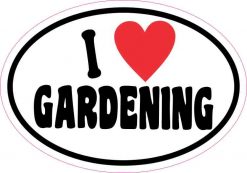Decisions, decisions, decisions so many decisions to make about having a veggie garden. What will I plant? Where will I plant? What do I need to prepare before planting? If you are a beginning gardener, these are questions you need the answers to before you get your hands dirty.
The first step is to do some important research. Purchase a book for beginning vegetable gardeners. Or, save your money (spend it on plants) and look on the internet. You need to find the zone you live in so you can see what grows in your area, when you need to plant it, how much sun it needs each day, how much water it needs and when, and what you need to do to prepare the soil for your selections. Plants vary in the ground nutrients they need to be productive. You treat them right and they will give back.
You have done your research and are ready to get started planting, but wait; you need to make one more decision. Are you going to plant directly in the ground, make some raised beds for your plants, or use containers? The amount of ground and where it is located will help you with this decision. If you do a ground garden think about how much sun will the area get during the growing season and be sure it is close to a watering source. Raised beds can be built on a wheel base so you can move the beds in or out of the sun as needed. Containers can also be placed on a wheel base for easy moving. An advantage of a raised bed is you can build it to a comfortable height for you personally so you do not have to bend over and end up with an aching back. If you decide on a raised bed or containers, be sure they have drainage holes in the bottom. Line them with small rocks to retain some of the water though.
Here is one of the best uses for white vinegar; put it in your garden as an insect deuterate and a weed killer. Insects are turned off by the odor and weeds just do not like it. Yet, your plants will thrive! (Use vinegar in your flower garden too.)
Something else you have around your home that you can use to keep your plants healthy is eggshells. Bugs, especially slugs and snails, hate eggshells. The ragged edges keep them away as they are afraid to climb over them. Wash and let the eggshells air dry thoroughly. Then, break them up and place them around the plant. Think of them as a protective wall keeping the unwanted invaders away from the valuable treasure. (Use them in your flower garden too.) Your plants will get nutrients from the eggshells to keep them healthy. The eggshells will decompose so you will need to keep replacing them.
If you like to help the environment, there are two things you can do when gardening. First, get a covered container to collect rain water in to use for watering. You can buy rain barrels at a local home improvement store or garden center. You can also look on the internet and make your own. Second, you can make your own organic compost which will be full of good things your plants will love. Composting is a great way to recycle table scraps.
So, if you spend time caring for your garden, how will your garden grow—healthy, healthy, healthy!
-
 10in x 3in Gardeners Know the Best Dirt Bumper Sticker$7.99
10in x 3in Gardeners Know the Best Dirt Bumper Sticker$7.99 -
 10in x 3in Garden Goddess Bumper Sticker$7.99
10in x 3in Garden Goddess Bumper Sticker$7.99 -
 10in x 3in Gardeners Spread the Best Dirt Bumper Sticker$7.99
10in x 3in Gardeners Spread the Best Dirt Bumper Sticker$7.99 -
 10in x 3in I Dig Gardening Bumper Sticker$7.99
10in x 3in I Dig Gardening Bumper Sticker$7.99 -
 5in x 3.5in Oval I Love Gardening Sticker$7.99
5in x 3.5in Oval I Love Gardening Sticker$7.99 -
 5in x 5in Gardener On Board Sticker$7.99
5in x 5in Gardener On Board Sticker$7.99






